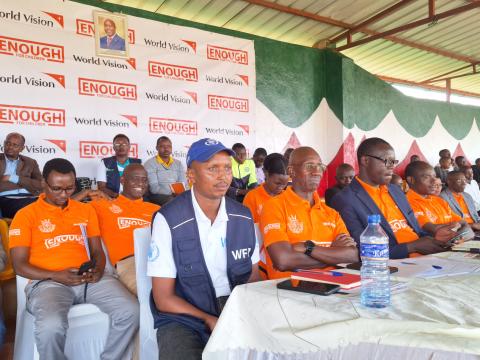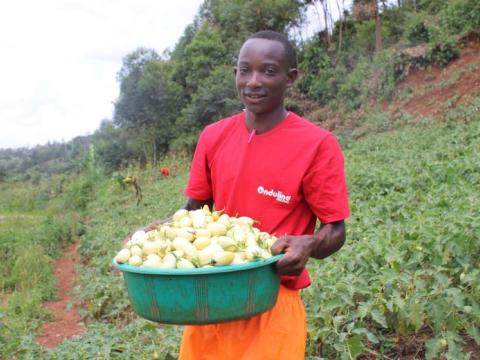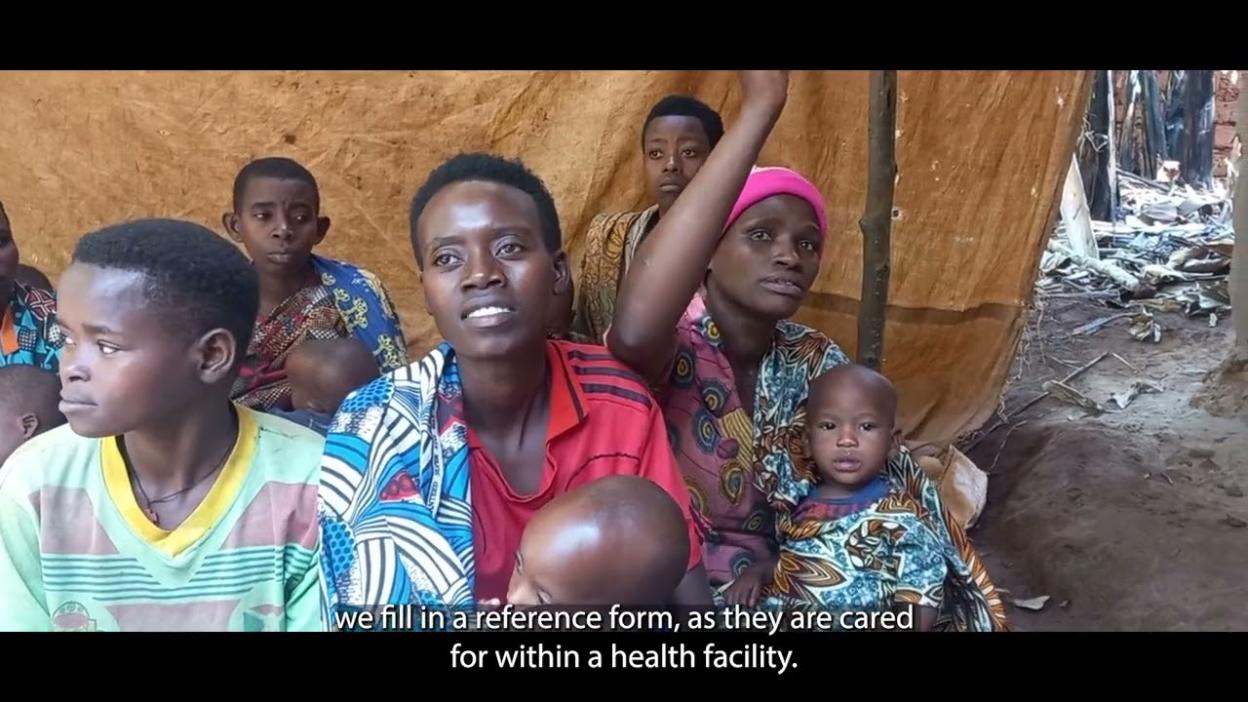

Malachie promoting change in his community
Learn MoreBurundi
World Vision Burundi
World Vision has been working in Burundi for more than five decades. Our teams first began working in Burundi in 1963. Our operations stopped towards the end of the 1980s but restarted in 1993, in response to the acute humanitarian needs as a result of widespread civil unrest.
In 1995, we opened our office in Bujumbura, the country’s capital. Over the past 30 years, our work has transitioned from providing emergency relief to investing in long-term development programmes.
Currently, our staff and programmes bring hope and help to children and communities across the country through a wide range of holistic, integrated projects. We work with those who are the most vulnerable - the poor and the oppressed - regardless of their religion, race, ethnicity or gender. To date, we bring hope and assistance to over 1,000,000 children (of whom more than 60,000 are sponsored children) and their communities in 26 Area Programs (APs) each year.
Our programmes work to ensure children and their communities have access to much-needed clean water, education, food, healthcare and the chance to live a life of fullness.
Our Impact
26
79,753
14,904
See how malnutrition is diagnosed and treated at community level
Our Areas of Focus

Unlock Literacy
Unlock Literacy is World Vision’s evidence-based model for ensuring children aged 6-9 (early primary grades) develop sustainable literacy skills and are educated for life.
The goal of Unlock Literacy is for all children to read with comprehension so that they become lifelong readers who love reading and can read to learn.
Literacy skills are a gateway to achieving a better quality of life. Unlock Literacy contributes directly to the achievement of SDG Goal 4: Ensure inclusive, equitable quality education and promote lifelong learning opportunities for all.

PDhearth
Positive Deviance is a “strength-based” or “asset-based” approach based on the belief that in every community there are certain individuals (“Positive Deviants”) whose special, or uncommon, practices and behaviours enable them to find better ways to prevent malnutrition than their neighbours who share the same resources and face the same risks.

Celebrating families
Celebrating Families (CF) is a faith-based core project model, which aims for children to have positive and caring relationships with families allowing them to thrive spiritually, socio-emotionally and physically.
As an enabling model, CF can help achieve diverse goals and outcomes because it works to change the behaviour and attitudes of parents and caregivers on a deeper level to create a safe and loving environment in the families; as well as influence social and cultural norms change through church and faith leaders and community influencers.

iWASH
The integrated Water, Sanitation and Hygiene interventions contribute to the reduction of preventable childhood diseases such as diarrhoea and other communicable diseases.






